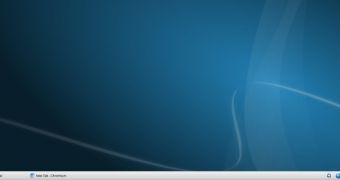LXQt or the Qt Lightweight Desktop Environment is a new piece of technology that represents the evolution of the old LXDE, which powers numerous distributions.
A while ago, the two teams from the LXDE and Razor-qt projects decided to merge and to develop a new desktop environment. It will eventually replace the current edition of LXDE, but that's not in the near future.
The two teams joining for a common project was something out of the ordinary. Usually, when developers want to make something new, they usually fork an existing project and give life to their own vision, but, in this case, the two teams thought that together they could do something better than either one.
“It has been almost a year since the Razor-qt project and the LXDE-Qt project decided to merge. Since then, the LXQt desktop has been under active development by 13 developers and dozens of contributors and translators.”
“The Linux community sees many forks but never any merges. The merge has been praised by a lot of members of this community. The Maui Project has joined our efforts in creating a better Qt desktop and together we hope to focus less on our differences and more on what we share,” said Jerome Leclanche, one of the developers from the LXQt project.
According to the changelog, LXQt 0.7.0 comes with a number of unique features and options. For example, PCManFM-Qt (a Qt port of LXDE's desktop and file manager) has been added as default, all-new modular architecture has been implemented, some improvements that allow the implementation of screens management have been added as well, keyboard settings and file associations, the cursor and appearance settings have been drastically improved, and the support for system-based setups is now much better.
Also, the work for Qt 5 compatibility is ongoing, Wayland support will land soon, a new obconf-qt tool for Openbox users has been added, another compton-conf tool for Compton users has been implemented, limited Raspberry Pi support has been included, and partial FreeBSD support is already in place.
These are just some of the features that will be available in the LXQt project, which, despite the version number, is considered stable. The users of the old LXDE desktop don't have to worry, as that project hasn't been abandoned, and the developers will continue to provide some support, although their focus is now on LXQt.
More details about the LXQT project can be found on the official website. You can download the LXQT sources right now from Softpedia, but the developer already provides some repositories for other systems like Ubuntu, Arch Linux, OpenSuSE, and Siduction.

 14 DAY TRIAL //
14 DAY TRIAL //